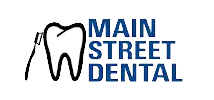Common Dental Emergencies
Posted by Mike Young Nov 06,2022
Toothache
Toothaches can be caused by a variety of issues, including tooth decay and cavities. A toothache is a sign that something is wrong with a tooth – this can be something as simple as a minor cavity or as serious as a fracture in the enamel or a nerve being affected. If left untreated, these issues can turn into bigger problems that can cause pain, discomfort, and even tooth loss. Some common causes of toothaches include:
- Cavities
- Abscesses (an infection in the gums)
- Cracked teeth (especially molars that are grinding against each other due to stress or misalignment)
- Gum disease
- Gingivitis (inflammation of the gums)
- Impacted wisdom teeth
- Orthodontic work causing soreness around certain areas of your mouth
- Bruxism (teeth grinding at night while you sleep)
- Dry mouth (lack of saliva) causing irritation to your gums and teeth
- Biting down on something hard when you do not have back molars
- Temperature sensitivity in some fillings
If you are experiencing a persistent toothache, you should not delay in calling your dentist for an assessment. The sooner the problem is detected and treated, the less pain and damage there will be in the long run.
It is best not to ignore a toothache – this can lead to irreversible damage to the teeth and gums. If you experience a toothache for more than a day, contact your emergency dentist for advice. Do not wait to see if the issue resolves itself on its own as this could end up leading to more serious problems. It is important to visit the dentist for a check-up at least twice a year to ensure that your teeth remain in good shape and you have good oral health. Even if you are not experiencing any pain or discomfort,
Broken or knocked out tooth
A knocked-out tooth can be replanted if you act quickly enough. First, rinse your mouth with salt water and apply a cold compress to the area to reduce swelling until you can get to the dentist. Then, see if you can slip the tooth back into the socket yourself; however, it’s usually easier to place it between your gums and cheek to keep it in place until you get help. If this isn’t possible, you can place the tooth in a container of milk to keep the root from drying out before you can get to the dentist’s office. If you need immediate assistance, contact us as soon as possible for an emergency appointment and get the help you need!
**NOTE**
It’s important not to scrub or brush the knocked out tooth or remove any attached tissue because it may damage the tooth’s cells needed for reattachment.
-Dr. Ryan M. Pace
Dentist
The Gentle Touch Dental Care
----------------------------------------------------------------------------
Author: Dr. Ryan M. Pace
Date Published: 2018-08-24T01:00:00-04:00
*If you’re looking to schedule a dentist appointment or have any questions for our practice, please contact our office in Knoxville, TN at 865-584-2503. We’re looking forward to hearing from you!*
The content on this blog is not intended to be a substitute for professional medical advice, diagnosis, or treatment. Always seek the advice of qualified health providers with questions you may have regarding medical conditions.
--------------------------------------
Knocked-out tooth (adult)
If you knock out a tooth, rinse it gently in cool water without touching the root surface. Hold the tooth by the crown and gently place it in the socket facing the correct way. If that isn’t possible, place the tooth in a container of warm milk or water and take immediately to the emergency dentist.
If the tooth can’t be saved or replanted, it will need to be replaced with an implant or bridge. While implants are the most expensive option, they’re the best option for replacing a lost tooth because they look and function like natural teeth. Bridges are more affordable but often require replacement over time. Talk to a dentist about your options before making a decision.
Dr. Smith’s has walk-in appointments available during the week. And if you’re a new patient who’s experiencing a dental emergency during office hours, we’ll get you taken care of as quickly as possible. Call us today at [PHONE].
Dental Care – Bellevue WA - Family & Cosmetic Dentist - Dr ... Care - Bellevue WA - Family & Cosmetic Dentist - Dr David R Smith DDS - Duration: 4 minutes, 54 seconds.
The Importance of Seeing Your Dentist Twice a Year for Oral ... In The Parkway | Our Practice | Pediatric Dentistry Near Me | Bellevue Children's Dentistry - Duration:
Knocked-out tooth (baby or child)
When a child’s permanent tooth is knocked out, call the dentist right away and bring the tooth with you if possible. The sooner you can get to the dentist the better chance you have of saving your child’s tooth.
If possible, try to place it back in its socket without touching the roots. This will help preserve the cells around the the root of the tooth and prevent it from drying out and dying. If you cannot replace it in the socket, hold it by the crown and place it in water or milk to keep it moist until you can get to the dentist.
If a baby tooth is knocked out of the mouth completely, your dentist will likely advise you not to replace it. Baby teeth do not serve any purpose in the mouth after the age of 12 and should be replaced at that time with a permanent tooth. If the baby tooth was knocked out prematurely, you may be able to replace the tooth with a space maintainer to prevent neighboring teeth from drifting into the space where the tooth was lost.
If a tooth is knocked out in an adult’s mouth, see a dentist as soon as possible. Adult teeth should also be handled with care when knocked-out to avoid damaging them further. Avoid touching the roots of the teeth as much as possible when handling them. The dentist may be able to re-implant the tooth if you act quickly enough. If this is not an option, it may be possible to replace the tooth with a dental implant.
If you have any questions please call your local emergency dentist today to schedule an appointment.
Author Bio
Dr. Stacey Cohen is a general dentist located in Long Island, NY. She earned her DMD degree from Temple University School of Dentistry and has been practicing dentistry for over 15 years. Her practice provides dental care for the whole family, including restorative, cosmetic, preventative, and pediatric services. To contact
Object caught between teeth
When a tooth is knocked out, immediately rinse the tooth with cold water and attempt to place it back into the socket. If this cannot be done, place the tooth in a glass of milk to preserve it until you arrive at the dentist’s office. The loss of a permanent tooth should be reported to a pediatric dentist as soon as possible. Permanent teeth are important for chewing and maintaining good oral health.
If a piece of food is trapped between two teeth and a child cannot dislodge the item, try flossing between the both sets of teeth to remove the item. However, if there is something stuck that cannot be removed by simple flossing, contact our office as soon as possible. Do not allow your child to eat or drink until the situation is resolved.
More Blog Posts
Location
3195 S Main St Ste 225,
South Salt Lake, UT 84115
Office Hours
MON - FRI9:00 am-5:00 pm
SATBy appointments only
SUNClosed

